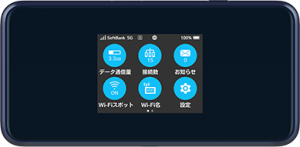Introduction: Why Should You Learn About Japanese Etiquette?
Japan is a country that values politeness and manners highly. Especially in public places and tourist spots, small gestures can determine whether you are seen as a “respectful visitor” or as someone who is unaware of local customs. Many foreign travelers are surprised to learn that Japan has unique social rules that are different from their home countries.
For example, an American friend of mine was shocked when he received disapproving glances for talking on the phone in a train. In his country, it’s completely normal, but in Japan, it is considered rude. Understanding these cultural differences in advance can help you enjoy your trip without any awkward moments. In this guide, we will cover basic Japanese etiquette, tourist-specific manners, and real experiences from foreigners who were surprised by Japan’s customs.

1. Basic Japanese Etiquette
The Culture of Bowing
Bowing is a crucial form of communication in Japan. A slight nod is enough for casual situations, but in formal settings or business interactions, people bow deeply from the waist. An American traveler once told me he was amazed at how hotel staff bowed deeply to greet him. “I’ve never seen such politeness before!” he said.
Taking Off Your Shoes
In Japan, it is customary to remove your shoes before entering homes, traditional restaurants, and some public spaces. Many foreigners are surprised when they are asked to take off their shoes in a restaurant. An English friend of mine was astonished when he had to take off his shoes to sit in a tatami-style izakaya. For Japanese people, it’s completely normal—it’s a way to keep indoor spaces clean.
Being Quiet in Public Spaces
Japanese trains and buses are incredibly quiet compared to those in many other countries. Talking on the phone is frowned upon, and even conversations between friends are kept at a low volume. Some foreigners are surprised to see that “turn off your phone” signs are posted near priority seating areas. An American tourist told me he got puzzled looks for speaking loudly with his travel buddy on a train. “I didn’t realize how important silence is here!” he admitted.

2. Etiquette for Tourists in Japan
Dining Etiquette
Chopsticks have their own set of etiquette rules. One major no-no is sticking chopsticks upright into food, as this is associated with funeral rituals. A Chinese traveler once told me she unknowingly did this at a ramen shop and was gently corrected by a Japanese person. “I had no idea that even chopstick placement had meaning!” she said.
Another surprising fact for tourists is that tipping is not customary in Japan. In the U.S. and Europe, tipping is standard in restaurants, but in Japan, it’s unnecessary. Many visitors are shocked when a server refuses their tip and insists that the bill covers everything.
Manners at Shrines and Temples
Popular tourist attractions like shrines and temples have specific rules. At the purification station (temizuya), visitors are expected to rinse their hands before entering. An American traveler once asked, “Why do we need to wash our hands before going in?” It’s a ritual to purify oneself before approaching the sacred site.
Another important rule is to maintain silence. Many temples are serene places of worship, yet some tourists take loud selfies or speak loudly. A French friend of mine said he realized how sacred temples are when he saw locals praying in silence. “I started to move more carefully and quietly,” he said.

3. Japanese Cultural Norms That May Surprise You
Obsession with Cleanliness
Japan is known for its high level of cleanliness. One thing that often surprises foreign visitors is the lack of trash cans in public areas. In many countries, you can find bins on every street corner, but in Japan, people are expected to carry their trash until they find a proper disposal spot. An American friend once had to carry an empty bottle for hours before finding a bin at his hotel.
Love for Standing in Line
Japan has a strong culture of queuing. Whether it’s at a bus stop, an escalator, or a convenience store, people naturally form lines. This is surprising for visitors from countries where pushing ahead is more common. An Italian traveler once told me, “Japanese people are so patient when waiting in line! I felt bad for rushing ahead in my country.”

4. Conclusion
Understanding Japanese etiquette can make your trip more enjoyable and help you connect with locals. Even if you accidentally break a rule, most Japanese people are understanding and will politely correct you. However, being mindful of these cultural norms shows respect and will make your visit more pleasant.
The next time you travel to Japan, try to keep these manners in mind. Not only will it help you avoid uncomfortable situations, but it will also make your experience richer and more immersive. Enjoy your trip, and embrace Japan’s unique customs!
Recommendation for Wi-Fi Router Rental
It’s available for rent at airports and major tourist locations, allowing you to connect to high-speed internet anywhere in Japan. Reservations can be easily made online, and both pickup and return are highly convenient. Without worrying about communication limits, you can check maps, search for restaurants, and post on social media, enriching your travel experience.

For renting Wi-Fi, “wifi-rental-japan” is recommended!
These gadgets showcase the best of Japanese technology and design, making them highly beneficial for visitors to Japan. Be sure to take advantage of these useful gadgets when traveling in Japan.
Recommended eSIM Service
The eSIM from RakuSim, which uses networks from major Japanese carriers, provides reliable connectivity not only in urban areas but also in rural regions. It offers plans suitable for short-term stays as well.
Easy Purchase & Setup
Purchasing is simple and fully online. After purchase, follow the URL in the confirmation email to download your eSIM profile, or scan the QR code provided. You’ll be ready to use the service on the same day.
Flexible Plans
RakuSim offers a variety of plans to match different stay lengths, from short to long-term. Popular for its high data capacity and great value.
Reliable Support
Customer support is available every day, including weekends and holidays, from 10:00 AM to 7:00 PM. You can reach the team via email or phone for any inquiries.
Wide Coverage
Using the docomo network, RakuSim covers even rural and mountainous areas, providing stable connections even on the move.
Pricing Plans
-
- 30GB / 8 Days: ¥2,900
Ideal for short-term use! High-capacity plan with excellent value. - 50GB / 16 Days: ¥3,400
Enjoy streaming and video calls with up to 50 hours over 16 days! - 50GB / 30 Days: ¥4,700
Perfect for one-month stays! Enjoy 50GB for streaming, emails, and social media with peace of mind for an entire month!
- 30GB / 8 Days: ¥2,900
▶Click here to purchase an eSIM:https://rakusim.net/












